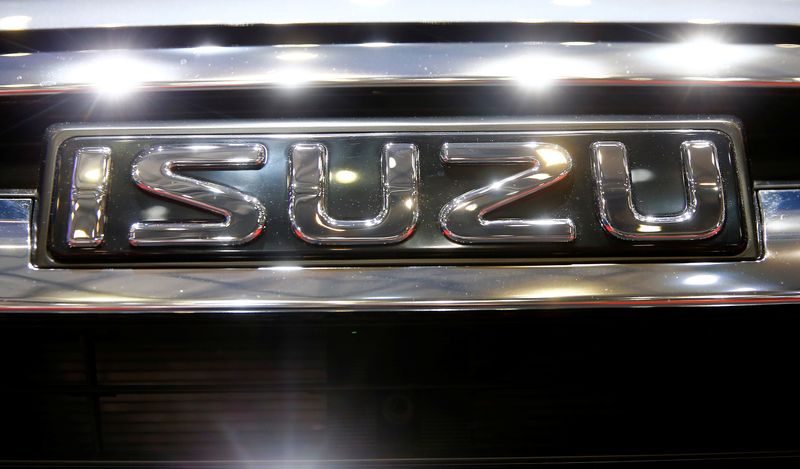Japan’s Isuzu Motors to produce EV pickup trucks in Thailand

FILE PHOTO: The logo of Isuzu is seen during the 87th International Motor Show at Palexpo in Geneva, Switzerland March 8, 2017. REUTERS/Arnd Wiegmann/File Photo
7202
+1.13%
Add to/Remove from Watchlist
Add to Watchlist
Add Position
Position added successfully to:
Please name your holdings portfolio
Type:
BUY
SELL
Date:
Amount:
Price
Point Value:
Leverage:
1:1
1:10
1:25
1:50
1:100
1:200
1:400
1:500
1:1000
Commission:
Create New Watchlist
Create
Create a new holdings portfolio
Add
Create
+ Add another position
Close
BANGKOK (Reuters) – Japanese automaker Isuzu Motors plans to use Thailand as a production base for an electric version of its D-MAX pickup truck, with a plan to start exports next year, a Thai government spokesperson said on Thursday.
Chai Wacharonke said the firm plans to invest 1 trillion yen ($6.62 billion) in research and development by 2030, including in a testing centre.
The electric D-MAX will be exported from Thailand starting in 2025 to countries like Norway, Britain, Australia and others, Chai said.
Isuzu will unveil the company’s first electric D-MAX pickup truck at the Bangkok International Motor Show next week, according to its website. The company did not respond to a Reuters request for comment on its investment plans in Thailand.
Auto makers, led by Chinese brands, are rushing to build EV facilities in Southeast Asia’s second-largest economy.
Thailand is a regional auto assembly and export hub, which has long been dominated by Japanese brands like Toyota (NYSE:TM) Motors and Honda Motor Co (NYSE:HMC).
It has drawn $1.4 billion worth of investment from Chinese automakers like BYD (SZ:002594) and Great Wall Motor to build production facilities.
This month, German automaker BMW (ETR:BMWG) began construction of a high-voltage battery production facility in Thailand’s Rayong province with plans for an EV assembly plant by 2025.
The country is offering incentives, tax breaks and other measures to boost EV production and convert 30% of its annual production of 2.5 million vehicles into EVs by 2030.
($1 = 151.0000 yen)








